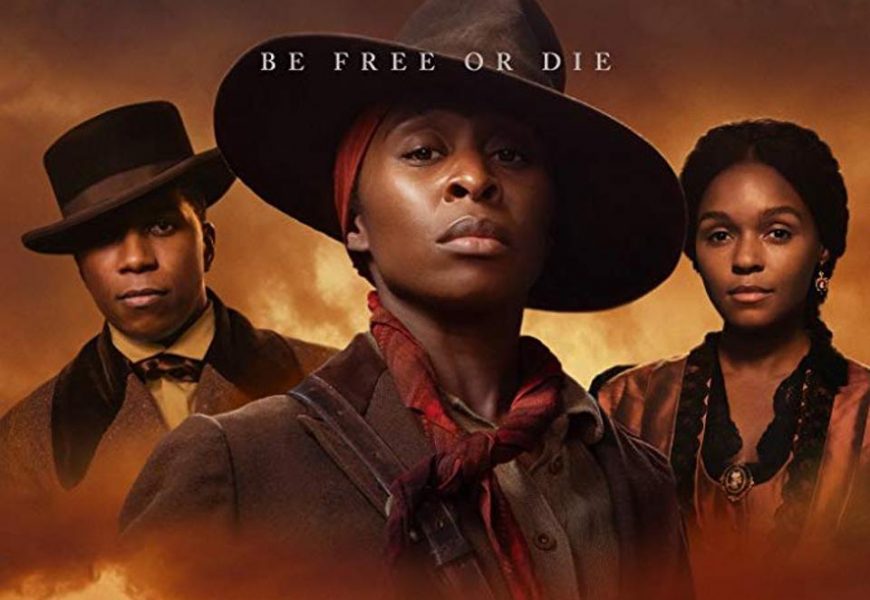In 1993, Steven Spielberg’s Schindler’s List was released in theaters. Almost immediately, it was hailed for being both a cinematic achievement as well as bringing a new, deeply harrowing and profound artistic perspective to the Holocaust that had never been seen before, particularly by mainstream audiences. In 1998, Roberto Benigni’s Life is Beautiful was released in America, and received its fair share of praise, but also an onslaught of criticism for its, shall we say, “cavalier” attitude about its subject matter. Simply put, Life is Beautiful would still have received a lot of criticism, but not nearly as much had Schindler’s List not been released a few years beforehand.
Life is Beautiful is the first movie that 2019’s Harriet reminded me of. Admittedly, this is not an entirely fair comparison. I think Harriet is underwhelming, but not insultingly bad like Life is Beautiful. However, they both had the misfortune of being made after far superior films with similar topics. Steve Mcqueen’s 12 Years a Slave (2013) is not only one of the decade’s best movies, but also the closest thing to Schindler’s List since 1993. Both its achievements as a movie, as well as its revolutionary representation of the subject matter in such a personal, brutal manner makes it nearly insurmountable for any film about slavery that comes after. Post 12 Years a Slave, movies like Harriet don’t cut it anymore.
Let’s start with what actually works.
To Harriet’s credit, the main thing that works about the movie is, well, Harriet. Cynthia Erivo turns in a strong performance as the titular character. And unlike with Roberto Benigni, hearing the terms “Cynthia Erivo” and “Oscar” in the same sentence doesn’t make me want to break everything in my home. I found that her performance was very well done, and never for a moment did I doubt her motivations, or even her unique “visions.” Yes, Harriet Tubman did in fact have visions, and I thought the way the film portrayed them was fine. The movie is assisted by the fact that its basic subject matter is inherently compelling. The escape/journey sequences are well-paced and enthralling, and obviously make for incredibly sympathetic character moments. The technical components of the film were decent enough. The production and costume design were convincing, and the cinematography was pretty good, too. One sequence in particular where Harriet first reaches freedom (don’t worry about spoilers, this is at the end of the first act) was not only moving, but also shared some nice iconography with The Sound of Music (1965).
However, as I stated earlier, there was quite a bit that could have been improved, so let’s head into what didn’t work for me.
As stated, Erivo is the best thing about this movie, and the further the plot strays from Harriet, the further the film as a whole strays from being watchable. Actors like Vondie Curtis Hall and Leslie Odom Jr. turn in pretty good performances (as I’m sure Hamilton fans aren’t surprised with), but Janelle Monáe comes across as fairly one-note for most of her scenes. Movies like Hidden Figures (2016) and Moonlight (2016) prove that she can do much better. The rest of the supporting cast isn’t much better. In fact, at some moments, I found the villains laughable.
Look, I’m the last guy to come to if you’re looking for astute insight on a film’s racial politics or it’s ethnic representation, so when even I pick up on something, you know that it must be pretty blatant. The film for the most part does a good job of not delving into Hollywood tropes of white-saviorism, but there is one brief scene near the end of the film that made me roll my eyes.
The script also suffers from being both a bit of a cookie-cutter biopic, as well as having some problems with the “show, don’t tell” rule. Near the end of the film, there’s a pretty on-the-nose monologue from Harriet to one of the villains about how slavery is evil. I don’t know how many people that are pro-slavery are going to watch a movie about Harriet Tubman, but after watching almost two hours with enough visible material to show anyone with a brain that slavery is the worst thing in American History, I don’t think this ham-fisted, redundant monologue is going to the be the thing that sways them.
The second movie that Harriet reminded me of was 2013’s Unbroken. Unbroken details the life of Veteran Louis Zamperini. In short, Zamperini’s life is extraordinary and could fit several movies within it. The movie attempted to depict his life as an Olympian by highlighting his time in the military, being lost at sea, and being a POW in a Japanese prison camp.
In comparison, Harriet Tubman’s life is incredibly captivating and ridiculously eventful. By the time the end of the film rolls around, the movie starts writing about the rest of her life on screen, which made me wonder: “Why do I not get to see any of this cool stuff?” To elaborate, the film’s final moments allude to Tubman’s future as a spy, and it comes across as almost dismissive. There’s an entire other movie in that premise that we never get to see.
Harriet is not a bad film. It’s a mixed bag with good intentions that more than anything left me a little disappointed. Harriet Tubman is one of America’s most pivotal, and frankly bad-ass, figures. I can’t help but feel her story deserves more than what we got. This movie tragically seems doomed to play in the background of eighth grade history class so the substitute teacher doesn’t have to do anything. Hopefully in ten years we get an HBO or Netflix mini-series giving her story the time and detail it needs. Maybe something like The Crown, with an older Harriet, played by Viola Davis, recounting her younger self, played by Lupita Nyong’o. But c’mon, we could only be so lucky. •










